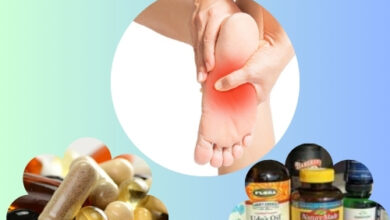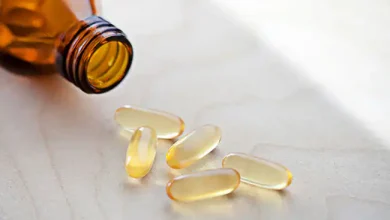Vitamin B8 Deficiency, Symptoms, Sources and Applications

The Culprit behind Deficiency of Vitamin B8
The name of vitamin B8 Biotin derives from the Greek word “bios” which means life. The Deficiency of Vitamin B8 can be alarming if the diagnosis is delayed. Vitamin B8 also called biotin, vitamin B7, or vitamin H is water-soluble and is part of the B complex. It intervenes in the metabolism of carbohydrates for energy production, as well as in proteins and fats. So, this compound helps your body adapt to the demands of the environment using its available resources.
In addition, biotin is necessary for essential enzymes in the production of fatty acids, which is why it plays an important role in cell growth. During pregnancy, it is essential to provide an adequate amount of this vitamin to ensure the correct growth and development of the embryo. Here is a recommended Diet for Pregnancy. On the other hand, vitamin B8 also stands out for being necessary to maintain the health of hair, nails, and skin.
What Happens When There Are Alterations?
When it comes to understanding the effect that vitamin B8 has on your body, you must bear in mind that its amount influences a lot. That is why imbalances in their availability levels can generate some health alterations.
Deficiency of Vitamin B8
Although Deficiency of Vitamin B8 is rare. Symptoms that indicate a deficiency of biotin include hair loss (often with loss of color). Please see this Healthy Hair Diet Plan. Other symptoms that could also occur are depression, listlessness, and tingling in the arms and legs, red and scaly rashes around the eyes, nose, and mouth.
Taking high doses of pantothenic acid (vitamin B5) or treatment with certain medications (such as antibiotics and some anticonvulsants) can affect the intestinal absorption of biotin, producing a decrease in it.
Deficiency of Vitamin B8 can also be found in:
- People with prolonged intravenous feeding.
- Smokers, as it accelerates the metabolism of the vitamin.
- Excessive alcohol consumption, because the diet of these people is often lacking in many ways.
- Pregnant women.
- People taking anticonvulsant drugs, reduce the absorption of biotin or blocks the action of biotinidase
- People who have taken or are taking antibiotics for a long time. They eliminate the intestinal bacterial flora that is responsible for producing about 50% of the daily requirements. Sulfa drugs and other antibiotics can decrease the bacterial synthesis of biotin.
- Patients undergoing a small bowel reduction.
Excess of Vitamin B8
Vitamin B8 is considered to be devoid of toxicity, even when taken in large amounts in the form of supplements.
Consumption recommendations
| Age group | Adequate Intake
(micrograms / day)
|
| 0 to 6 months | 5 |
| 7 to 12 months | 6 |
| From 1 to 3 years | 8 |
| 4-8 years | 12 |
| From 9 to 13 years old | 20 |
| From 14 to 18 years old | 25 |
| Over 19 years old | 30 |
| Pregnancy | 30 |
| Lactation | 35 |
Symptoms of Deficiency of Vitamin B8
- Dermatitis
- Muscle pain
- Mild anemia
- Fatigue
- Depression
- Cardiac disorders
- Drowsiness
- Growth disorders
Sources of Vitamin B8
Red Meat
Red meat, as long as it is fat-free, can be part of a Healthy Diet Plan. A 100 g steak can supply the body with 32 g of protein, 10 mg of iron, and 3.4 mcg of vitamin B8. When accompanied by rice and beans, it forms a dish rich in carbohydrates, essential amino acids, fats, iron, and other minerals, and other vitamins. Please refer to this Rice Diet Meal Plan
Egg
The high concentration of protein found in an egg is considered higher than that in milk or fish. Consuming eggs is essential for our diet. It is a source of calcium, iron, zinc, and manganese, in addition to having few colors. As for the vitamin, in 100 g of egg yolk, we find approximately 0.025 mg of vitamin B8.
Cereals
Cereals are an essential part of a healthy diet and when whole grains are better sources of fiber, selenium, potassium, and magnesium. Eating a variety of whole grains ensures your body’s intake of essential nutrients. Care must be taken when these cereals are coated with fat. In pastels, for example, they come to represent a synonym for weight gain.
People with Type II Diabetes tend to have a Deficiency of Vitamin B8. A 1600 calorie diabetic meal plan is recommended for people with Type II diabetes.
Therapeutic Applications
- Hair loss.
- Brittle nails
- Glossitis
- Muscle pains
- Seborrheic dermatitis.
- Cradle cap (the mother should take between 4.00-6.00 mcg a day).
- Mellitus diabetes.
- Regulation of the level of triglycerides.
- Graying of hair together with PABA, folic acid, and pantothenic acid.
Benefits of Vitamin B8
Some of the benefits of Vitamin B8 are:
- Improves bone health
- Essential for good brain function
- Improves cognitive abilities, memory, muscle memory, and motor coordination
- Helps to maintain the good functioning of the liver
- Promotes detoxification in the body so that it works better
- Helps provide more oxygen to the muscles
The Benefits of Vitamin B8, Deficiency, and Dietary Sources are documented in this article for your well-being. We have discussed some interesting facts regarding Vitamin V8 below.
DID YOU KNOW…?
- Biotin is quite stable at high temperatures, so it is not lost during cooking. However, the white of the egg contains an antinutrient, avidin, which works by preventing its absorption at the intestinal level. Therefore, eating two or more raw egg whites for prolonged periods can lead to a Deficiency of Vitamin B8
- Fortunately, avidin is deactivated by the effect of heat. So, to avoid this undesirable effect it is enough to always eat well-cooked eggs.
- It is also possible to benefit from this contribution of vitamin B8 if you use egg yolks in dishes prepared with heat, such as whisking them together with oat flakes and putting the mixture in the microwave to create a kind of very nutritious dough.




